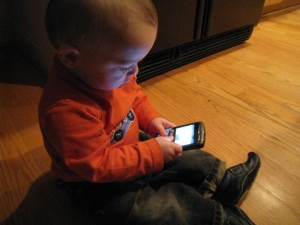I recently got a robocall call from a home security company, offering me a free system so they could get a foothold in my neighborhood. I considered it for a moment, and then hung up, even though I want a home security system. Why?
Because I assumed they were lying. Do they really mean free, or are they just waiving some fee? Do I really think it’s going to end up costing me nothing? Clearly not.
Every time I get on an airplane, the pilot lies to me.
If there’s anything we can do to make your flight more enjoyable, please don’t hesitate to ask.
I’ve rung the call bell exactly once in all my miles of air travel, to ask a flight attendant to throw away a half-full cup of water. I had a two-year-old on my hands and nowhere to put the cup. She glared at me as though I had asked her to disrobe and sing show tunes.
How do you think your boss would react if you went into your next performance review and said, “I did everything I could possibly have done as well as anyone could possibly have done it. I am flawless and perfect.”
Yet that’s what most companies do with their marketing and communications. And when a real issue comes up, only then do they admit there might be something possibly that could maybe be ever so slightly better, and now that it’s been raised to their attention, they’ll address it immediately.
Your customers and prospects, especially the ones you want to attract and keep, know as much or more about your products and services as you do. They know the flaws as well as the benefits. They know how you stack up against your competitors. They know if you’re cheaper or more expensive. They know if you’re easier to use, or provide more value.
In every industry I’ve ever worked in, our prospects were extremely intelligent and well informed. When they came to us, they had done their research. They didn’t want a sales pitch; they wanted an honest exploration of whether or not our products could meet their needs. And I’ve been fortunate enough to work for companies who felt confident responding honestly, knowing that we would prevail.
Why is “We’re only human” an excepted tenet of life, but a last resort and an admission of failure when a company says it?
What’s the worst thing that could happen if you admitted to your customers that you know the truth as well as they do, are sincerely working to make things better and value their input in the process?
Could that really be a bad thing?
 Recently I speculated about the
Recently I speculated about the